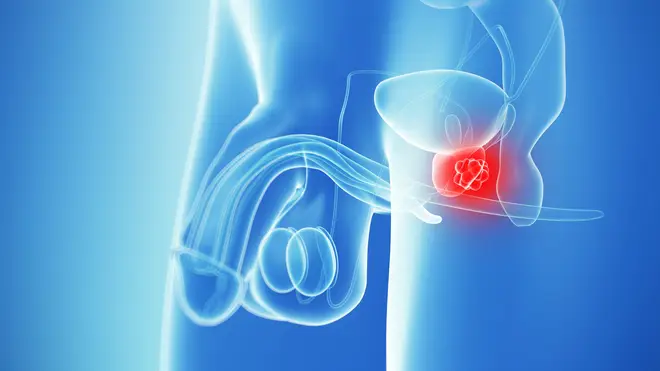
Nick Ferrari 7am - 10am
6 March 2018, 10:31 | Updated: 28 October 2019, 15:53

Over 1million men are diagnosed with prostate cancer every year - and more than 300,000 will die from it. This is what you need to know to make sure you catch it quickly.
Who is most at risk from prostate cancer?
Men over the age over 65 are most at risk. The older a man gets, the more likely he will develop prostate cancer. The disease is rare in men under 45 years of age.
You are also more at risk if you have a father, brother or son who has had prostate cancer, while it's also more common among African-Caribbean or African men.
What are the signs and symptoms of prostate cancer?
Many men with prostate cancer have no symptoms related to their cancer. For those that do, symptoms could include: urinary problems, blood in the urine or semen, pain in the pelvis, spine or upper legs, pain during ejaculation or difficulty getting an erection.
What is the prostate?
The prostate is a small gland in the pelvis found only in men. It is located between the penis and the bladder and is about the size of a satsuma.
Who should get checked for prostate cancer?
The NHS recommends that any man over the age of 50 gets regular checks
How do doctors check for prostate cancer?
The most commonly used tests for prostate cancer are:
- Blood tests, where they look at the levels of prostate-specific antigen
- A physical examination of your prostate.
- A biopsy.
What is the prostate cancer treatment?
For many men with prostate cancer, treatment is not immediately necessary. If the cancer is at an early stage and not causing symptoms, careful monitoring may be suggested.
If caught in the early stages, some cases of prostate cancer can be cured. Treatments include surgically removing the prostate, radiotherapy and hormone therapy.
If the cancer has spread, usually to the bones, then it cannot be cured and treatment is focused on prolonging life and relieving symptoms.
What causes prostate cancer?
Researchers are unsure on the causes of prostate cancer are largely unknown.